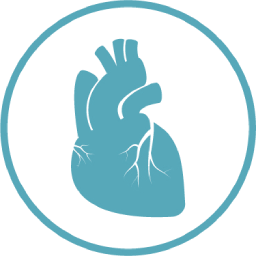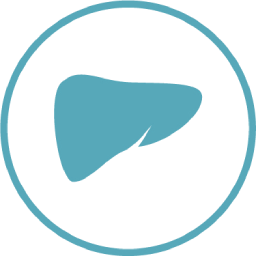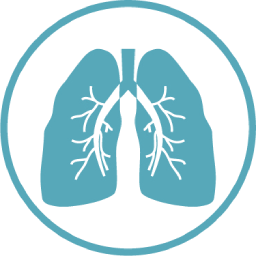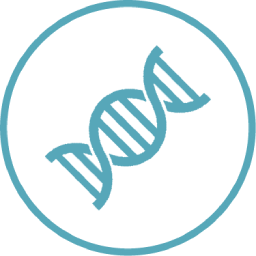Association of miRNAs with
Brain Disease
what is
Brain Disease?

Brain diseases refer to a group of medical conditions that affect the structure or function of the brain. These diseases can impact the brain’s ability to control behavior, movement, sensation, or cognitive function. Examples of brain diseases include Alzheimer’s disease, Parkinson’s disease, Huntington’s disease, multiple sclerosis, epilepsy, and traumatic brain injury. Symptoms of brain diseases can vary widely depending on the type of disease and the location of the affected area in the brain. Common symptoms include changes in mood or behavior, difficulty with memory, movement disorders, seizures, and sensory disturbances. Treatment for brain diseases often depends on the specific disease and can include medication, surgery, and therapy. Brain diseases can have a significant impact on an individual’s quality of life, making early diagnosis and treatment essential.
Basic
Praesent nec magna ac pede.
- Etiam imperdiet dolor
- Nam tempor nisl
- Fusce rutrum orci
- Donec sed nibh ut
Association of miRNAs with brain diseases
Project.1 Conducting a single and multi-marker analysis with >2000 plasma circulatory miRNAs measured in 1615 participants of the population-based Rotterdam Study, we found 47 miRNAs nominally association with cognition and 18 miRNAs with incident dementia after adjustment for potential confounders. Four miRNAs, namely miR-4539, miR-372-3p, miR-7106-5p and miR-566, were common between cognition and dementia. We showed potential target genes and pathways regulated by these miRNAs.
Genome-wide profiling of circulatory microRNAs associated with cognition and dementia. Yaqub A, et al. Alzheimers Dement. 2022 Aug 10. doi: 10.1002/alz.12752. PMID: 35946915
Project.2 Examining the variants within the miRNA-related sequences associated with Alzheimer’s disease (AD) showed rs2291418 in the miR-1229 precursor and 10 variants located in the 3′ UTR of 9 miRNA target genes to be associated with AD, including rs6857 that increases the miR-320e-mediated regulation of PVRL2.
Genome-wide identification of microRNA-related variants associated with risk of Alzheimer’s disease. Ghanbari M, et al. Sci Rep. 2016 Jun 22;6:28387. PMID: 27328823
Project.3 By leveraging data from the largest available genome-wide association meta-analysis of Alzheimer’s disease (AD) we investigated the association of genetic variants in miRNAs and AD. We found SNPs annotated to 5 miRNAs significantly associated with AD. A leading variant (rs2526377:A>G) at the 17q22 locus annotated to MIR142 was significantly associated with a reduced risk of AD. Functional genomic analyses revealed that the SNP affects the promoter activity and decreases the expression of miR-142. Expression analysis by RNA-Seq in human iPSC-derived neural progenitor cells and the hippocampus of miR-142 knockout mice demonstrated several genes involved in AD pathways that are regulated by miR-142-3p.
A functional variant in the miR-142 promoter modulating its expression and conferring risk of Alzheimer disease. Ghanbari M, et al. Hum Mutat. 2019 Nov;40(11):2131-2145. PMID: 31322790.
Project.4 We utilized oligodendrocyte-specific translating ribosome affinity purification and RNA-seq (TRAP-seq) to transcriptionally profile adult mature oligodendrocytes from different regions of the central nervous system. Weighted gene co-expression network analysis reveals distinct region-specific gene networks. Two of these mature myelinating oligodendrocyte gene networks uniquely define cortical oligodendrocytes and differentially regulate cortical myelination (M8) and synaptic signaling (M4). These two cortical oligodendrocyte gene networks are enriched for genes associated with dementia including MAPT and include multiple gene targets of the regulatory miR-142-3p. Using a combination of TRAP-qPCR, miR-142-3p overexpression in vitro, and miR-142-null mice, we show that miR-142-3p negatively regulates cortical myelination.
miR-142-3p regulates cortical oligodendrocyte gene co-expression networks associated with tauopathy. Hinman JD, et al. Hum Mol Genet. 2021 Mar 25;30(1):103-118. PMID: 33555315.
Using data from the largest available GWAS, we tested the association of miRNA-related genetic variants with Parkinson disease (PD). We identified rs897984 in miR-4519 and rs11651671 in miR-548at-5p as well as 32 variants located in 3’UTR 13 miRNA target genes to be associated with PD. Our in silico and in vitro experiments showed how these variants may change miRNA gene regulation in PD.
Genetic Variants in MicroRNAs and Their Binding Sites Are Associated with the Risk of Parkinson Disease. Ghanbari M, et al. Hum Mutat. 2016 Mar;37(3):292-300. PMID: 26670097
Expression levels of 2083 miRNAs were measured in plasma samples from 1914 stroke-free participants of the Rotterdam Study. Participants were assessed for incident stroke through continuous monitoring of medical records for >10 years. Cox proportional hazards regression models were used to investigate the association between miRNAs well-expressed in plasma and incident stroke. After adjusting for potential confounders, we found plasma levels of miR-6124, miR-5196-5p, and miR-4292 to be associated with incident stroke. In silico analysis of the putative target genes of these miRNAs showed associations of variants in several target genes with stroke.
Circulatory MicroRNAs as Potential Biomarkers for Stroke Risk: The Rotterdam Study. Mens MMJ, …, Ghanbari M.
Stroke. 2021 Mar;52(3):945-953. doi: 10.1161/STROKEAHA.120.031543.

Genetic regulation of miRNAs

Multi-omics integration of miRNAs

Disease association of miRNAs
Follow US
on These Social Media or Websites













